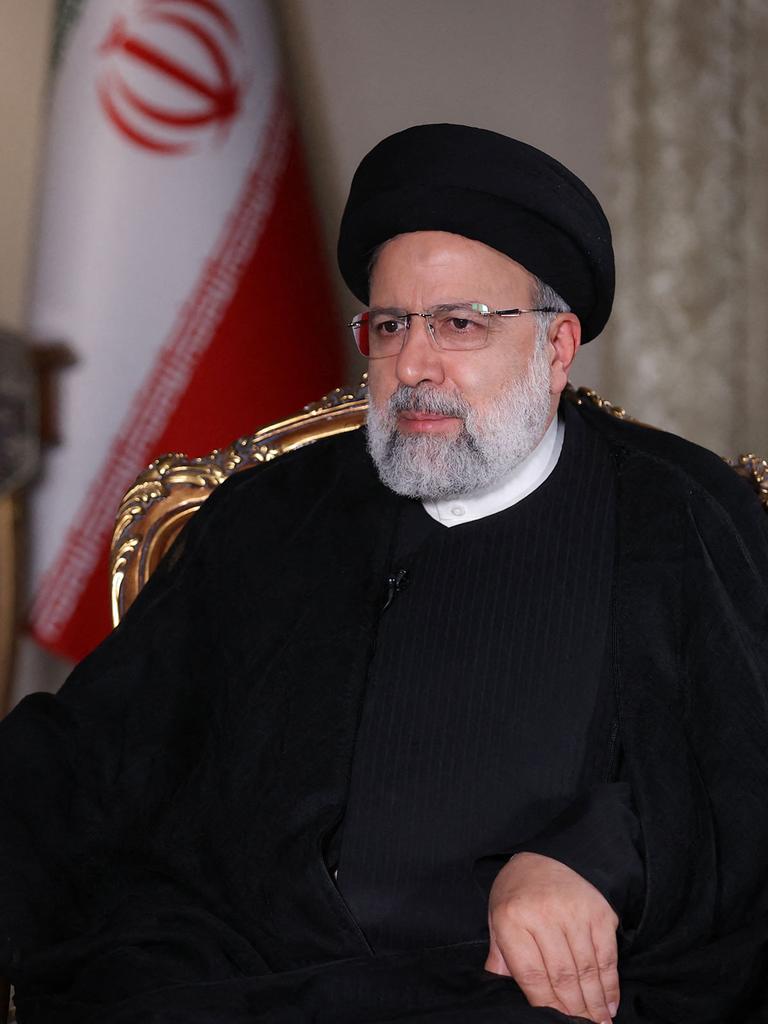We need a new world order to contain axis of dictators


The Pax Americana, which has served so many of us so well, is under ominous challenge and there is no prepared fallback position for those who, for 70 years and more, have depended upon American power and wealth to provide stability and security in a dangerous world.
Just over 30 years ago, the Soviet Union collapsed and there were visionaries proclaiming the “End of History” – a global rise to what Winston Churchill, in an optimistic moment, described as “the broad, sunny uplands of history”.
Instead, we stand on the brink of World War III, in a world with nine or 10 nuclear-armed states, a deeply dysfunctional United Nations and a coalition of dictatorships that are looking increasingly aggressive. When Vladimir Putin invaded Ukraine last year, he did not catch Washington by surprise. But he did surprise almost all the rest of us, even Volodymyr Zelensky.
Major war had been dreamily assumed to be a thing of the past, if only because of nuclear deterrence. Suddenly, it was so real that Sweden and Finland, both neutral throughout the Cold War, applied to join NATO.
When Hamas launched its atrocious assault on Israeli civilians on 7 October, Israel’s formidable intelligence and security agencies were caught by surprise. The shock of what Hamas did to thousands of helpless Israeli civilians – in the worst massacre of Jews since the Holocaust – turned apparent diplomatic trends in the Middle East on their head within 24 hours. Now, as Israel hammers Hamas in retaliation, escalation to a wider war in the Middle East seems distinctly possible.
Both wars broke out even as global opinion saw China’s ambitions and the dispute over the future of Taiwan as the most serious flashpoint in international affairs. Shall we be caught by surprise a third time? In what way and with what implications?

Those are now worrying questions on the minds of many, even as Anthony Albanese prepares to go to Beijing to signal goodwill towards the Great Dictator.
Let’s be clear: there is an axis of states now actively seeking to bring down the Pax Americana. The ringmaster is Xi Jinping. He has declared to the sinister Vladimir Putin: “We have the opportunity to change the global order more fundamentally than it has been changed in a hundred years.”
Change a la Xi and Putin would not be for the better.
Beijing, Moscow, Tehran and that nasty little ultra-militarised “hermit principate” North Korea are the axis. Ranged against them are the wealthiest and most democratic states in world history, in Europe, Asia and the Americas. But the latter are only loosely co-ordinated and mostly not even close to a war footing.
Should a wider conflict break out in the Middle East, drawing in those US military assets now stationed in the eastern Mediterranean, we shall be at the brink. We shall be in a place we did not foresee and are seriously ill-equipped to deal with. If Beijing plays its cards adroitly, it could press for and gain significant concessions in Asia without actually going to war.
But Xi has been actively preparing for war. Indeed, he has recently purged his Minister of Foreign Affairs, his Minister of Defence and the Commander of his Strategic Rocket (Nuclear) Forces, while his erstwhile premier, Li Keqiang, has just died unexpectedly. One can’t help thinking of Stalin’s purges in the late 1930s.


Did Xi remove all these high officials in order to quell dissent over his plan to overturn the Pax Americana?
The first order of business for all the Western states, which is to say the liberal democracies in Europe, Asia and North America, is to rearm rapidly, against the possibility of having to defend the existing order against co-ordinated assault by the axis.
The second order of business is to use every art of diplomacy and geo-economic manoeuvre to dissuade and deter Beijing from making the situation worse than it already is.
But the third order of business is ultimately the most vital. It is to confer within the parameters of the liberal international order concerning the principles and institutions of a renewed new global order. Not, of course, the one Xi Jinping and Vladimir Putin or the Iranian Revolutionary Guard Corps have in mind.
At a series of major crises, generally in fact in the wake of catastrophic wars, international conferences have been shaping ideas of world order and the international constitution of states for the past four or five centuries. Along the way, the very nature of how states are governed and how they construe international order has changed.
We need, now, to imagine and think through the next evolutionary step – or face a breakdown of order, peace and prosperity on a gigantic scale. That next step will, of necessity, entail coming to grips with the logic of geopolitical competition in an “end of history” world, which is to say a world in which 21st century technologies and transnational dilemmas render the ideologies of the 20th century anachronistic.

Such thinking was done after the Thirty Years War, after the Napoleonic War, after the First World War, after the Second World War. This time it needs to be done before the Third World War and without the assumption of initial agreement with the dictatorships. Rather, it will take into account the interests of the countries ruled by the dictators and seek to engineer an order which will both constrain the dictators and hold out an olive branch to the countries.
Nor will conflicting interests among the liberal democracies be trivial. The precedent for such a conference of the endangered liberal states is Bretton Woods, in July 1944, in which the United States and the United Kingdom wrestled over the transformation of the British Empire into the Pax Americana.
Paul Monk is a Melbourne-based writer and author of a dozen books, including Dictators and Dangerous Ideas.







With two serious wars under way and an alignment of dictators and terrorists threatening them, the liberal democracies now need to re-examine the foundations of world order, and act in such a manner as to give a new order its best chance of arising.